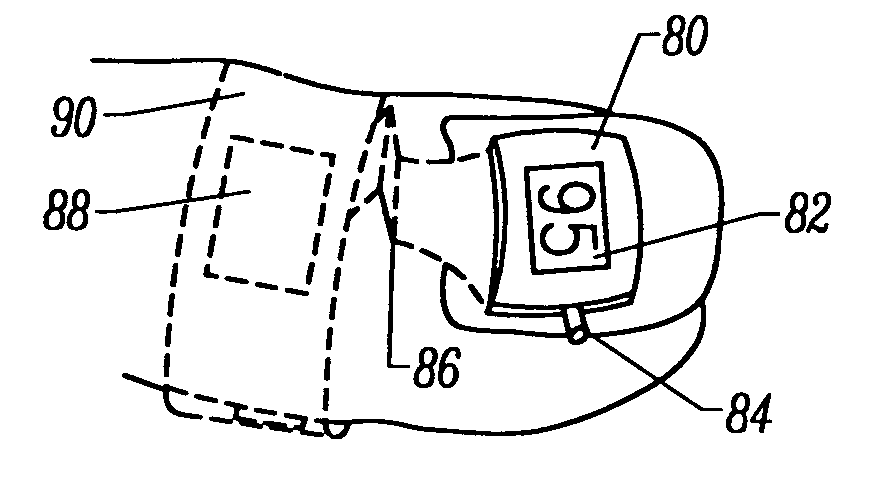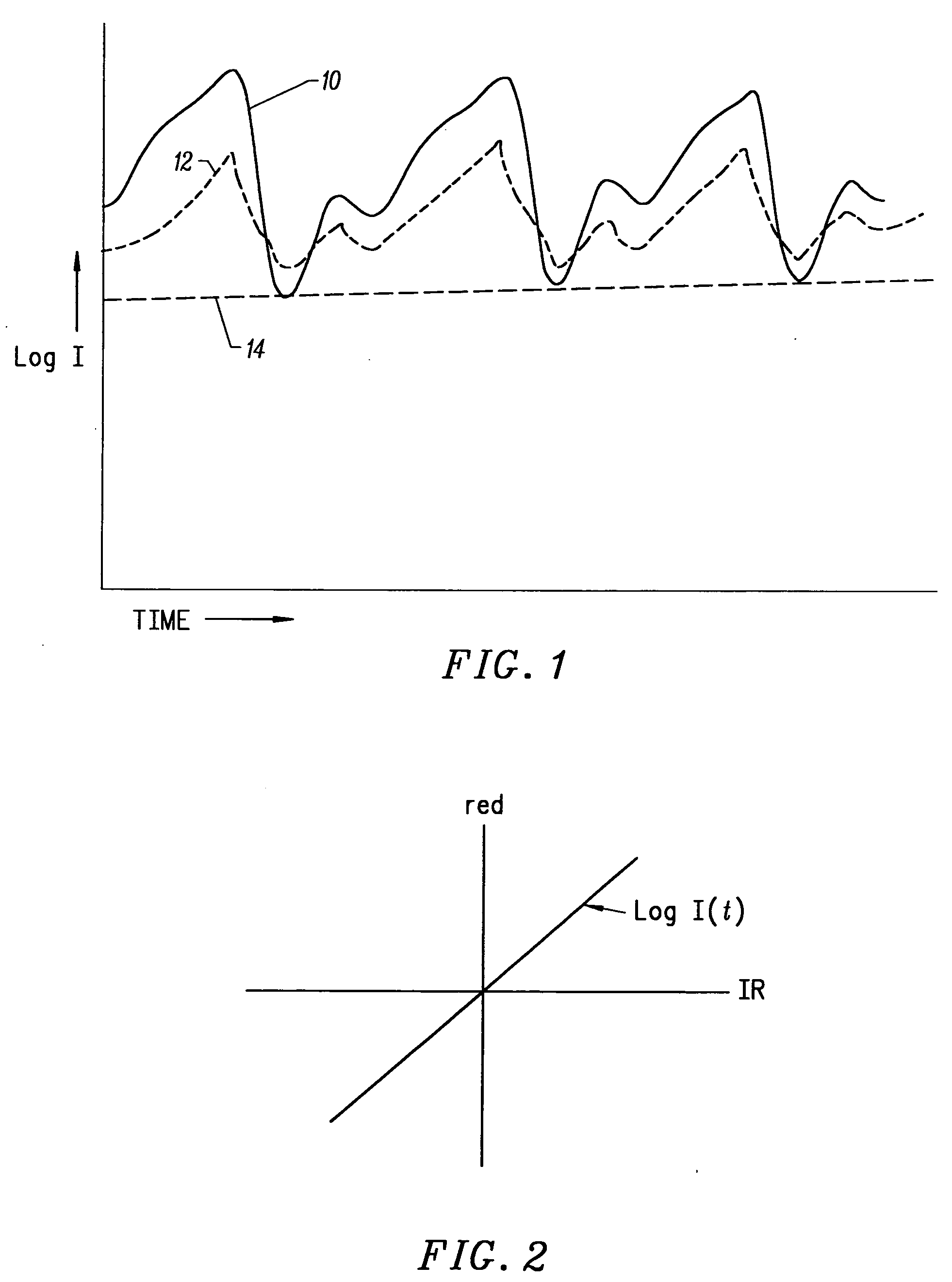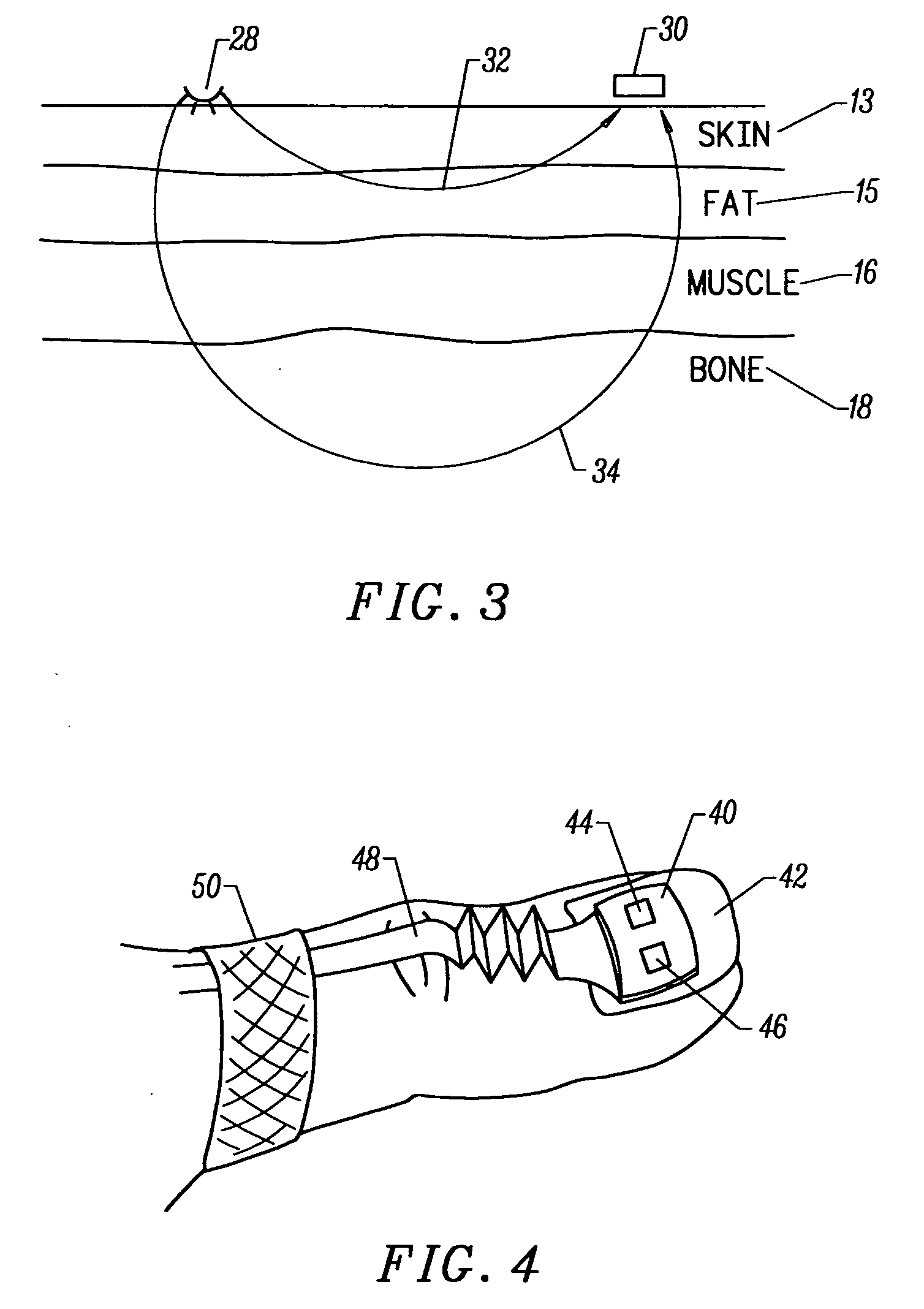Motion compatible sensor for non-invasive optical blood analysis
a sensor and optical blood analysis technology, applied in the field of optical sensors for non-invasive determination of physiological characteristics, can solve the problems of reducing the chance of the affecting the accuracy of measurement, so as to reduce the probability of oximeter locking onto a periodic motion signal and reduce the probability of signal impedement measurement, the effect of low mass
- Summary
- Abstract
- Description
- Claims
- Application Information
AI Technical Summary
Benefits of technology
Problems solved by technology
Method used
Image
Examples
Embodiment Construction
[0043]FIG. 4 illustrates a sensor 40 according to the present invention preferably mounted on a nail 42 (a thumbnail or any other digit may be used). The sensor is held on with adhesive, and has an emitter 44 and a detector 46. A flexible circuit 48 provides the electrical connections to the emitter and detector, and may be accordion-shaped between the sensor and a securing band 50 to provide additional strain relief. This isolates the sensor from tugging or pulling on the electrical connection cord from either the sensor side or the other direction. Band 50 may be, for instance, an elastic band, cloth wrap secured with Velcro™, or another device. Flexible circuit 48 could be electrical wires or fiber optic cables. The different wavelength light could be premixed using the fiber optic cable.
[0044] The placement on the top of the nail allows the cable to extend along the top of the finger or other digit, without the sensor or the cable being on the palmar side of the digit where it ...
PUM
 Login to View More
Login to View More Abstract
Description
Claims
Application Information
 Login to View More
Login to View More - R&D
- Intellectual Property
- Life Sciences
- Materials
- Tech Scout
- Unparalleled Data Quality
- Higher Quality Content
- 60% Fewer Hallucinations
Browse by: Latest US Patents, China's latest patents, Technical Efficacy Thesaurus, Application Domain, Technology Topic, Popular Technical Reports.
© 2025 PatSnap. All rights reserved.Legal|Privacy policy|Modern Slavery Act Transparency Statement|Sitemap|About US| Contact US: help@patsnap.com



